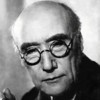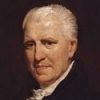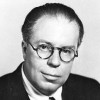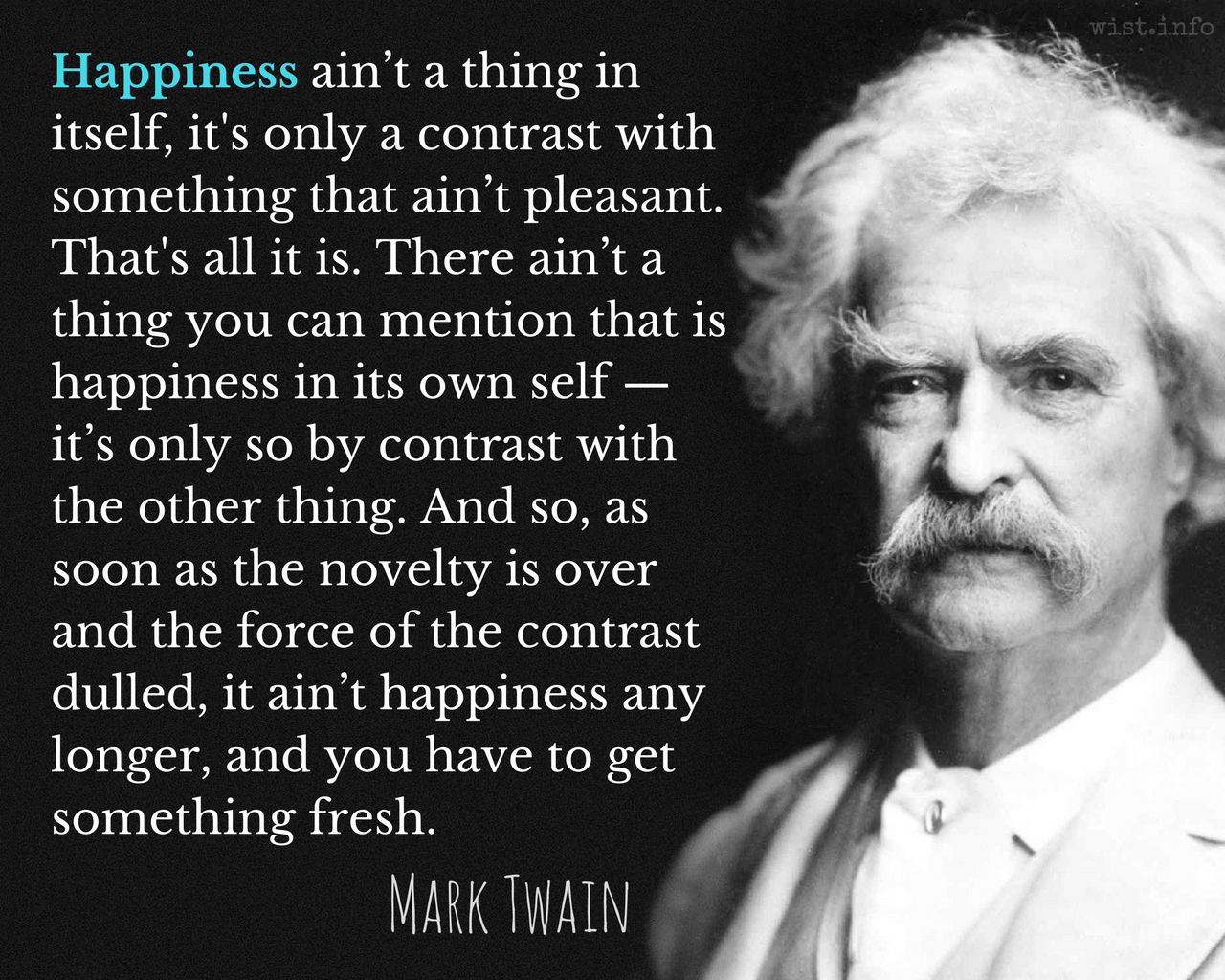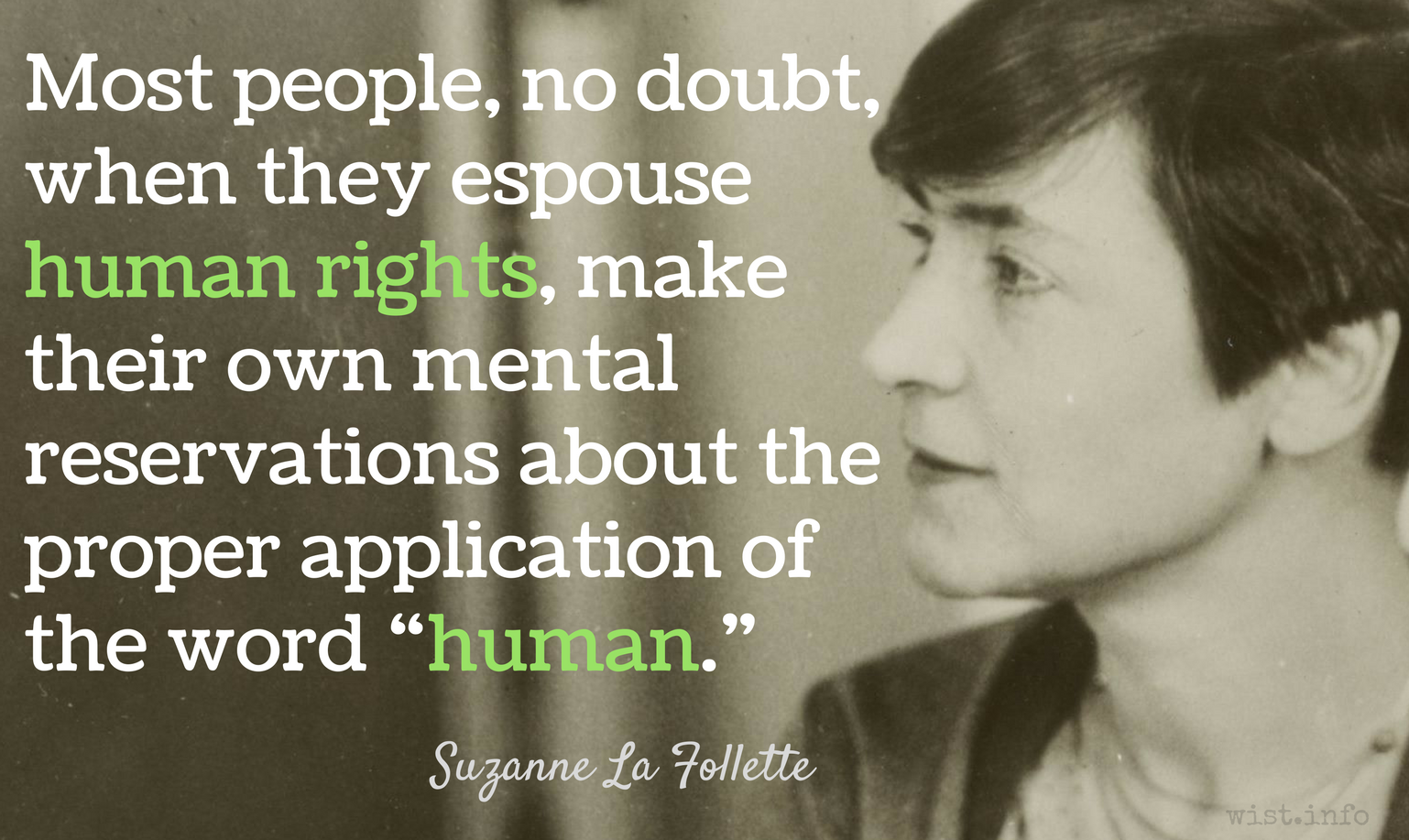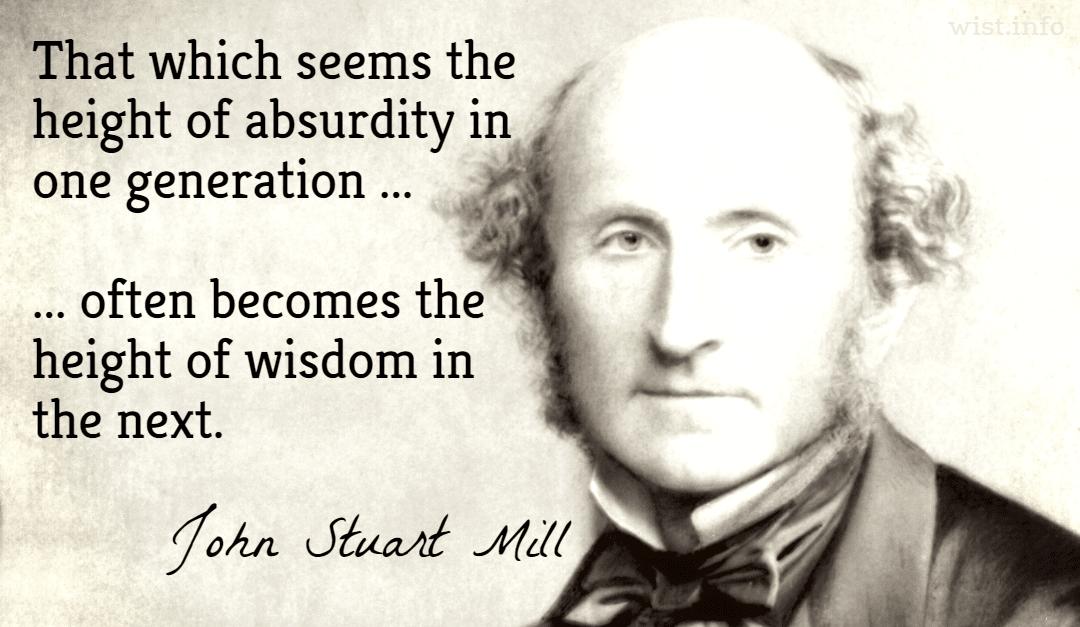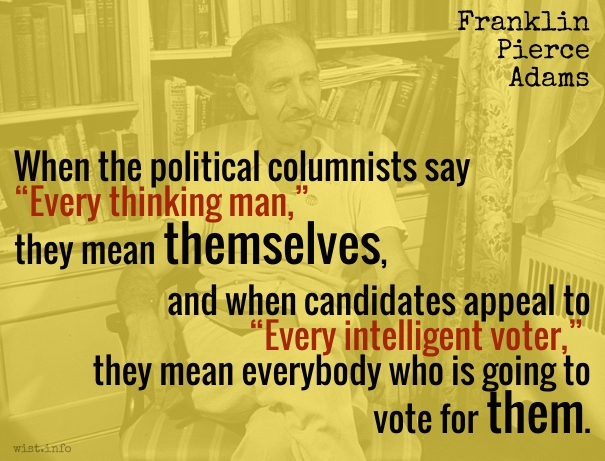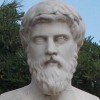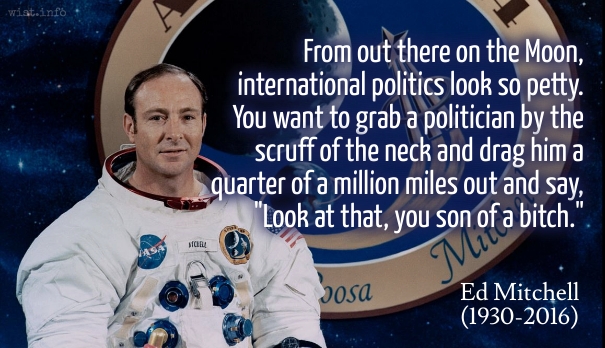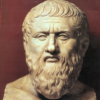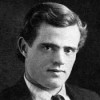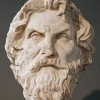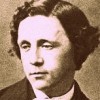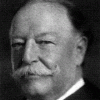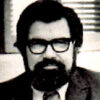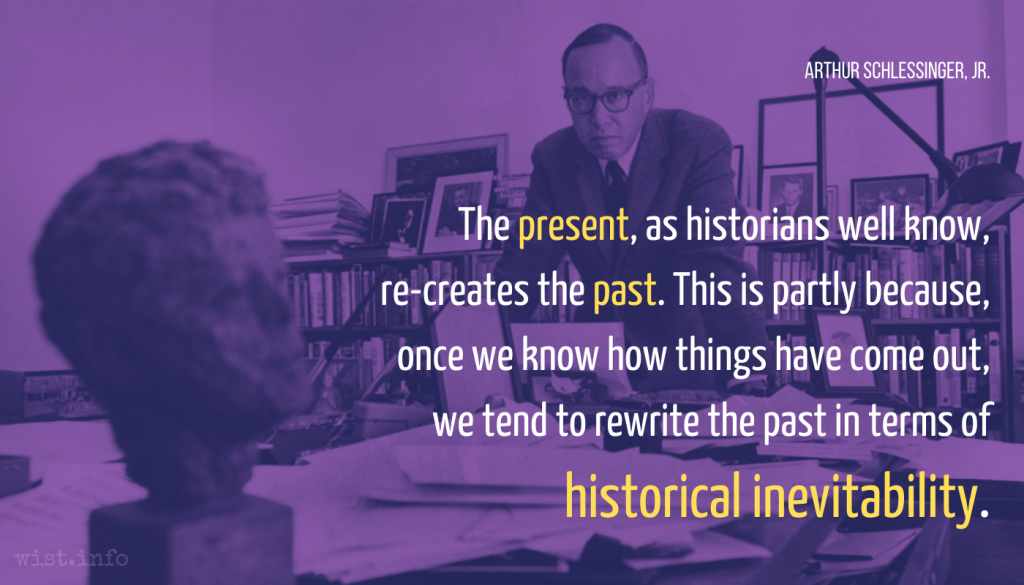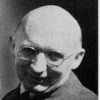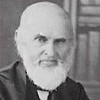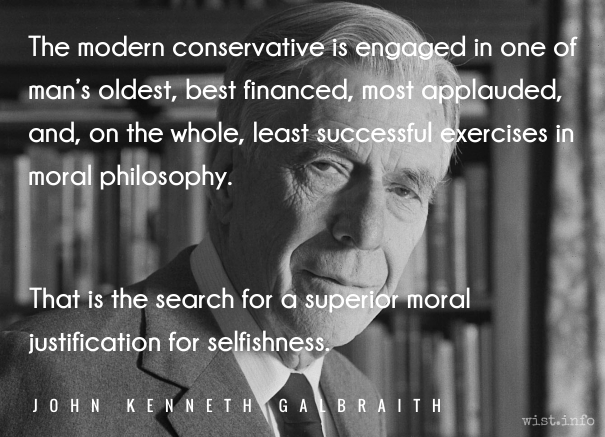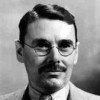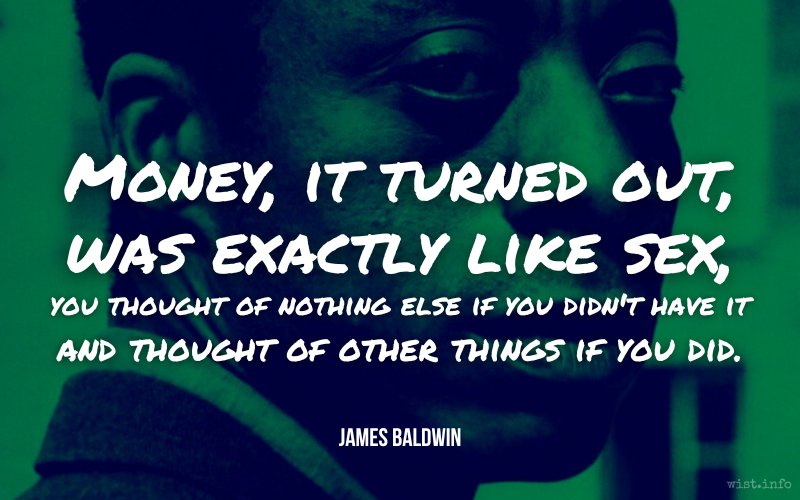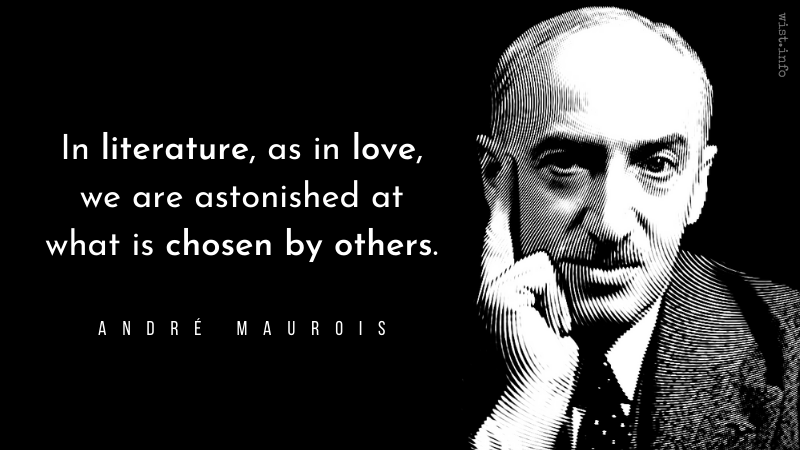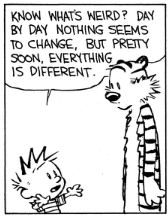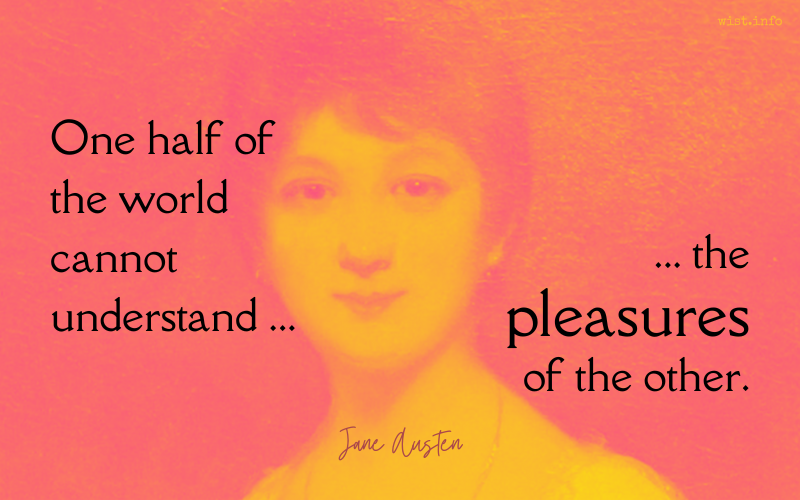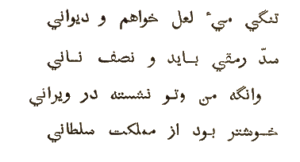Other people’s appetites easily appear excessive when one doesn’t share them.
André Gide (1869-1951) French author, Nobel laureate
The Counterfeiters, “Edouard’s Journal: Oscar Molinier” (1925)
(Source)
Quotations about:
perspective
Note not all quotations have been tagged, so Search may find additional quotes on this topic.
That which we call sin in others, is experiment for us.
Ralph Waldo Emerson (1803-1882) American essayist, lecturer, poet
“Experience,” Essays: Second Series (1844)
(Source)
Life is easy to chronicle, but bewildering to practice.
E. M. Forster (1879-1970) English novelist, essayist, critic, librettist [Edward Morgan Forster]
A Room with a View, ch. 14 (1908)
(Source)
It is said that his time was easier than ours, but I doubt it — no time can be easy if one is living through it.
James Baldwin (1924-1987) American novelist, playwright, activist
“Why I Stopped Hating Shakespeare”
(Source)
PISTOL: Knocks go and come. God’s vassals drop and die,
And sword and shield,
In bloody field,
Doth win immortal fame.BOY: Would I were in an alehouse in London! I would
give all my fame for a pot of ale, and safety.PISTOL: And I.
William Shakespeare (1564-1616) English dramatist and poet
Henry V, Act 3, sc. 2, l. 9ff (3.2.9-14) (1599)
(Source)
My son, a perfect little boy of five years and three months, had ended his earthly life. You can never sympathize with me; you can never know how much of me such a young child can take away. A few weeks ago I accounted myself a very rich man, and now the poorest of all.
Ralph Waldo Emerson (1803-1882) American essayist, lecturer, poet
Letter to Thomas Carlyle (1842-02-28)
(Source)
It is striking how much more seriously we are likely to be taken after we have been dead a few centuries.
Alain de Botton (b. 1969) Swiss-British author
The Consolations of Philosophy, ch. 4 “Consolation for Inadequacy” (2000)
(Source)
One was never married, and that’s his hell; another is, and that’s his plague.
We do not judge men by what they are in themselves, but by what they are relatively to us.
Anne Sophie Swetchine (1782-1857) Russian-French author and salonist [Madame Swetchine]
The Writings of Madame Swetchine, “Airelles”, #25 (1869) [ed. Count de Falloux, tr. Preston]
(Source)
I also think living in the country gives you faith. All you have to do is get up and look at the mountains and look at the other animals to realize that your problems are mostly made up or exacerbated by humans. But human life isn’t necessarily life. There’s so much more out there.
Better keep yourself clean and bright: you are the window through which you must see the world.
George Bernard Shaw (1856-1950) British playwright and critic
The Revolutionist’s Handbook, “Honor” (1905)
(Source)
Any sufficiently advanced magic is indistinguishable from technology.
Charles "Charlie" Stross (b. 1964) British writer
The Nightmare Stacks, ch. 18 (2016)
(Source)
A variant of Clarke's Third Law.
Where Plenty smiles — alas! she smiles for few,
And those who taste not, yet behold her store,
Are as the slaves that dig the golden ore,
The wealth around them makes them doubly poor.George Crabbe (1754-1832) English poet, writer, surgeon, clergyman
The Village, Book 1, line 136 (1783)
(Source)
Love, I find is like singing. Everybody can do enough to satisfy themselves, though it may not impress the neighbors as being very much.
Zora Neale Hurston (1891-1960) American writer, folklorist, anthropologist
Dust Tracks on a Road, ch. 14 “Love” (1942)
(Source)
No one would have believed in the last years of the nineteenth century that this world was being watched keenly and closely by intelligences greater than man’s and yet as mortal as his own; that as men busied themselves about their various concerns they were scrutinized and studied, perhaps almost as narrowly as a man with a microscope might scrutinize the transient creatures that swarm and multiply in a drop of water. With infinite complacency men went to and fro over this globe about their little affairs, serene in their assurance of their empire over matter. It is possible that the infusoria under the microscope do the same. No one gave a thought to the older worlds of space as sources of human danger, or thought of them only to dismiss the idea of life upon them as impossible or improbable. It is curious to recall some of the mental habits of those departed days. At most terrestrial men fancied there might be other men upon Mars, perhaps inferior to themselves and ready to welcome a missionary enterprise. Yet across the gulf of space, minds that are to our minds as ours are to those of the beasts that perish, intellects vast and cool and unsympathetic, regarded this earth with envious eyes, and slowly and surely drew their plans against us. And early in the twentieth century came the great disillusionment.
H.G. Wells (1866-1946) British writer [Herbert George Wells]
The War of the Worlds, Book 1, ch. 1 (1898)
(Source)
She ate her trifle, reflecting that grinding poverty, though loathsome while one is in it, has the advantage of making one enjoy money in a way denied to the rich-from-birth.
You can’t go back home to your family, back home to your childhood, back home to romantic love, back home to a young man’s dreams of glory and of fame, back home to exile, to escape to Europe and some foreign land, back home to lyricism, to singing just for singing’s sake, back home to aestheticism, to one’s youthful idea of “the artist” and the all-sufficiency of “art” and “beauty” and “love”, back home to the ivory tower, back home to places in the country, to the cottage in Bermuda, away from all the strife and conflict of the world, back home to the father you have lost and have been looking for, back home to someone who can help you, save you, ease the burden for you, back home to the old forms and systems of things which once seemed everlasting but which are changing all the time — back home to the escapes of Time and Memory.
Thomas Wolfe (1900-1938) American writer
You Can’t Go Home Again, Book 7 “A Wind Is Rising and the Rivers Flow” (1940)
(Source)
When you sell a man a book you don’t sell him just twelve ounces of paper and ink and glue — you sell him a whole new life.
Christopher Morley (1890-1957) American journalist, novelist, essayist, poet
Parnassus on Wheels, ch. 4 (1917)
(Source)
The moral of it is, that if we would build on a sure foundation in friendship, we must love our friends for THEIR sakes rather than OUR OWN; we must look at their truth to THEMSELVES, full as much as their truth to US. In the latter case, every wound to self-love would be a cause of coldness; in the former, only some painful change in the friend’s character and disposition — some frightful breach in his allegiance to his better self — could alienate the heart.
Charlotte Brontë (1816-1855) British novelist [pseud. Currer Bell]
Letter to W S. Williams (21 Jul 1851)
(Source)
An individual has not begun to live until he can rise above the narrow horizons of his particular individualistic concerns to the broader concerns of all humanity. And this is one of the big problems of life, that so many people never quite get to the point of rising above self. And so they end up the tragic victims of self-centeredness. They end up the victims of distorted and disrupted personality.
Martin Luther King, Jr. (1929-1968) American clergyman, civil rights leader, social activist, preacher
“Conquering Self-Centeredness,” sermon, Dexter Avenue Baptist Church, Montgomery, Alabama (11 Aug 1957)
(Source)
Happiness ain’t a thing in itself, it’s only a contrast with something that ain’t pleasant. That’s all it is. There ain’t a thing you can mention that is happiness in its own self — it’s only so by contrast with the other thing. And so, as soon as the novelty is over and the force of the contrast dulled, it ain’t happiness any longer, and you have to get something fresh.
Most people, no doubt, when they espouse human rights, make their own mental reservations about the proper application of the word “human.”
Suzanne La Follette (1893-1983) American journalist, author, feminist
Concerning Women, “The Beginnings of Emancipation” (1926)
(Source)
Tragedy plus time equals comedy.
Steve Allen (1922-2000) American composer, entertainer, and wit.
“Steve Allen’s Almanac,” Cosmopolitan (Feb 1957)
Similar formulations have been made by Carol Burnett, Lenny Bruce, Bob Newhart, and Woody Allen. For more discussion see here.
That which seems the height of absurdity in one generation often becomes the height of wisdom in the next.
John Stuart Mill (1806-1873) English philosopher and economist
(Attributed)
(Source)
Often cited from a quote in Adlai Stevenson, Call to Greatness (1954), but appears earlier in, e.g., National Magazine (Nov 1911). Unverified in Mills' writings.
On a recent Sunday evening, Theo came up with an aphorism: the bigger you think, the crappier it looks. Asked to explain he said, “When we go on about the big things, the political situation, global warming, world poverty, it all looks really terrible, with nothing getting better, nothing to look forward to. But when I think small, closer in — you know, a girl I’ve just met, or this song we’re going to do with Chas, or snowboarding next month, then it looks great. So this is going to be my motto — think small.”
In youth, the years stretch before one so long that it is hard to realize that they will ever pass, and even in middle age, with the ordinary expectation of life in these days, it is easy to find excuses for delaying what one would like to do but does not want to; but at last a time comes when death must be considered.
W. Somerset Maugham (1874-1965) English novelist and playwright [William Somerset Maugham]
The Summing Up, ch. 3 (1938)
(Source)
If conservatives get to call universal health care “socialized medicine,” then I get to call private, for-profit health care “soulless, vampire bastards making money off human pain.”
As one gets older one doesn’t feel quite so strongly any more, one discovers that everything is always going to be exactly the same with different hats on.
Noël Coward (1899-1973) English playwright, actor, wit
Letter (1959)
(Source)
More frequently paraphrased (as in The Film Daily in 1964): "As one gets older, one discovers everything is going to be exactly the same -- with different hats on."
The best advice I’ve ever received is, “No one else knows what they’re doing either.”
I bid good-bye to the old century, may it rest in peace as it has lived in war. Of the new century I prophesy nothing except that it will see the decline of the British Empire. Other worse empires will rise perhaps in its place, but I shall not live to see the day. It all seems a very little matter here in Egypt, with the pyramids watching us as they watched Joseph, when, as a young man four thousand years ago, perhaps in this very garden, he walked and gazed at the sunset behind them, wondering about the future just as I did this evening. And so, poor wicked nineteenth century, farewell!
A truly great book should be read in youth, again in maturity, and once more in old age, as a fine building should be seen by morning light, at noon and by moonlight.
Robertson Davies (1913-1995) Canadian author, editor, publisher
“Too Much, Too Fast,” Peterborough Examiner (Canada) (1962-06-16)
(Source)
Things are much more complicated. Feminism versus pornography, for example. There are a lot of feminists who think it is bad, but others think it’s good. I have become, you might call it mature, I would call it senile, and I can see both sides. But you can’t write a satirical song with “but on the other hand” in it, or “however.” It’s got to be one-sided.
Tom Lehrer (b. 1928) American mathematician, satirist, songwriter
Interview, Sydney Morning Herald (2003)
(Source)
What Paul says about Peter tells us more about Paul than it does about Peter.
Baruch Spinoza (1632-1677) Dutch philosopher
(Attributed)
(Source)
Quoted by Erich Fromm, Psychoanalysis and Religion, 3 (1950).
HAMLET: For there is nothing either good or bad, but thinking makes it so.
William Shakespeare (1564-1616) English dramatist and poet
Hamlet, Act 2, sc. 2, l. 268ff (2.2.268) (c. 1600)
(Source)
You develop an instant global consciousness, a people orientation, an intense dissatisfaction with the state of the world, and a compulsion to do something about it. From out there on the Moon, international politics look so petty. You want to grab a politician by the scruff of the neck and drag him a quarter of a million miles out and say, “Look at that, you son of a bitch.”
Edgar "Ed" Mitchell (1930-2016) American aviator, engineer, astronaut
(Attributed)
The earliest source I can find of the quote is in People (8 Apr 1974), where it appears as an epigraph for a story on Mitchell three years after his flight to the Moon.
Things are not getting worse; things have always been this bad. Nothing is more consoling than the long perspective of history. It will perk you up no end to go back and read the works of progressives past. You will learn therein that things back then were also terrible, and what’s more, they were always getting worse. This is most inspiriting.
Molly Ivins (1944-2007) American writer, political columnist [Mary Tyler Ivins]
The Progressive (Mar 1986)
(Source)
None knowes the weight of anothers burthen.
George Herbert (1593-1633) Welsh priest, orator, poet.
Jacula Prudentum, or Outlandish Proverbs, Sentences, &c. (compiler), # 880 (1651 ed.)
(Source)
Nothing is good or bad but by Comparison.
Thomas Fuller (1654-1734) English physician, preacher, aphorist, writer
Gnomologia: Adages and Proverbs (compiler), # 3666 (1732)
(Source)
“I suppose there are two views about everything,” said Mark.
“Eh? Two views? There are a dozen views about everything until you know the answer. Then there’s never more than one.”
Whoever destroys a soul, it is considered as if he destroyed an entire world. And whoever saves a life, it is considered as if he saved an entire world.
The Talmud (AD 200-500) Collection of Jewish rabbinical writings
Mishnah Sanhedrin 4:9; Yerushalmi Talmud, Tractate Sanhedrin 37a
(Source)
Alt. trans.: "Whoever destroys a single life is as guilty as though he had destroyed the entire world; and whoever rescues a single life earns as much merit as though he had rescued the entire world."
He whose Belly is full, believes not him whose is empty.
Thomas Fuller (1654-1734) English physician, preacher, aphorist, writer
Gnomologia: Adages and Proverbs (compiler), # 2399 (1732)
(Source)
This problem, when solved, will be simple.
Charles F. Kettering (1876-1958) American inventor, engineer, researcher, businessman
Sign at the General Motors research laboratories
(Source)
Quoted by Kettering in "Don't Be Afraid to Stumble," The Rotarian (Jan 1952)
ORLANDO: But, O, how bitter a thing it is to look into happiness through another man’s eyes!
William Shakespeare (1564-1616) English dramatist and poet
As You Like It, Act 5, sc. 2, l. 45ff (5.2.45) (1599)
(Source)
Age is never so old as youth would measure it.
If evil Men speak good, or good Men evil of thee; examine thy Actions, and suspect thy self: But if evil Men speak evil of thee; hold it as an Honor, and by way of Thankfulness love them; but upon condition, that they continue to hate thee.
Thomas Fuller (1654-1734) English physician, preacher, aphorist, writer
Introductio ad Prudentiam, Vol. 1, # 1252 (1725)
(Source)
Honor wears different coats to different eyes.
Barbara W. Tuchman (1912-1989) American historian and author
The Guns of August, ch. 7 (1962)
(Source)
The contemporary has no perspective; everything is in the foreground and appears the same size. Little matters loom big, and great matters are sometimes missed because their outlines cannot be seen. Vietnam and Panama are given four-column headlines today, but the historian 50 or 100 years hence will put them in a chapter under a general heading we have not yet thought of.
Barbara W. Tuchman (1912-1989) American historian and author
“Can History Be Served Up Hot?” New York Times (8 Mar 1964)
(Source)
It is only when you truly don’t care what people think that you truly don’t need to care what people think.
Abdal Hakim Murad (b. 1960) British Muslim shaykh, researcher, writer, academic [b. Timothy John Winter]
“Contentions 2,” # 5
(Source)
The so-called lessons of history are for the most part the rationalizations of the victors. History is written by the survivors.
Maxwell "Max" Lerner (1902-1992) American journalist, columnist, educator
It Is Later Than You Think: The Need for a Militant Democracy (1939)
(Source)
What a wee little part of a person’s life are his acts and his words! His real life is led in his head, and is known to none but himself. All day long, and every day, the mill of his brain is grinding, and his thoughts (which are but the mute articulation of his feelings,) not those other things, are his history. His acts and his words are merely the visible thin crust of his world, with its scarred snow summits and its vacant wastes of water — and they are so trifling a part of his bulk! a mere skin enveloping it. The mass of him is hidden — it and its volcanic fires that toss and boil, and never rest, night nor day. These are his life, and they are not written, and cannot be written. Every day would make a whole book of eighty thousand words — three hundred and sixty-five books a year. Biographies are but the clothes and buttons of the man — the biography of the man himself cannot be written.
Mark Twain (1835-1910) American writer [pseud. of Samuel Clemens]
The Autobiography of Mark Twain, Vol. 1 (2010)
(Source)
For to a great man both things are needful; to treat trifles as trifles and important matters as important matters.
[Denn zu einem großen Manne gehört beides: Kleinigkeiten als Kleinigkeiten, und wichtige Dinge als wichtige Dinge zu behandeln.]
Gotthold Lessing (1729-1781) German playwright, philosopher, dramaturg, writer
Hamburgische Dramaturgie [Hamburg Dramaturgy], Essay 34, 1767-08-25 (1767-1769) [tr. Zimmern (1890)]
(Source)
(Source (German)). Alternate translations:For the great man does both, that is, he treats trivialities as trivialities and important things as important things.
[tr. Arons/Figal]It is the mark of great people to treat trifles as trifles and important matters as important.
[Source]
However accurately we may determine the “facts” of history, the facts themselves and our interpretations of them, and our interpretation of our own interpretations, will be seen in a different perspective or a less vivid light as mankind moves into the unknown future. Regarded historically, as a process of becoming, man and his world can obviously be understood only tentatively, since it is by definition something still in the making, something as yet unfinished. Unfortunately for the “permanent contribution” and the universally valid philosophy, time passes; time, the enemy of man as the Greeks thought; to-morrow and to-morrow and to-morrow creeps in this petty pace, and all our yesterdays diminish and grow dim: so that, in the lengthening perspective of the centuries, even the most striking events (the Declaration of Independence, the French Revolution, the Great War itself; like the Diet of Worms before them, like the signing of the Magna Carta and the coronation of Charlemagne and the crossing of the Rubicon and the battle of Marathon) must inevitably, for posterity, fade away into pale replicas of the original picture, for each succeeding generation losing, as they recede into a more distant past, some significance that once was noted in them, some quality of enchantment that once was theirs.
Carl L. Becker (1873-1945) American historian
“Everyman His Own Historian” (3), speech, American Historical Association, Minneapolis (29 Dec 1931)
(Source)
Most of the bad guys in the real world don’t know that they are bad guys. You don’t get a flashing warning sign that you’re about to damn yourself. It sneaks up on you when you aren’t looking.
Great as our differences are, all of us — professors, politicians, preachers — would no doubt find that we had much in common after all if it were possible to meet in the flesh some distinguished representatives from a former age.
Power always Sincerely, conscientiously, de très bon foi, believes itself Right. Power always thinks it has a great Soul and vast Views, beyond the Comprehension of the Weak; and that it is doing God Service when it is violating all his Laws.
John Adams (1735-1826) American lawyer, Founding Father, statesman, US President (1797-1801)
Letter to Thomas Jefferson (2 Feb 1816)
(Source)
de très bon foi = "very candidly"
Don’t let them tell us stories. Don’t let them say of the man sentenced to death “He is going to pay his debt to society,” but: “They are going to cut off his head.” It looks like nothing. But it does make a little difference.
Though we see the same world, we see it through different eyes. Any help we can give you must be different from that you can give yourselves, and perhaps the value of that help may lie in the fact of that difference.
Whenever Richard Cory went down town,
We people on the pavement looked at him:
He was a gentleman from sole to crown,
Clean-favored and imperially slim.And he was always quietly arrayed,
And he was always human when he talked;
But still he fluttered pulses when he said,
“Good Morning!” and he glittered when he walked.And he was rich, yes, richer than a king,
And admirably schooled in every grace:
In fine — we thought that he was everything
To make us wish that we were in his place.So on we worked and waited for the light,
And went without the meat and cursed the bread,
And Richard Cory, one calm summer night,
Went home and put a bullet in his head.
Keep strong, if possible. In any case, keep cool. Have unlimited patience. Never corner an opponent, and always assist him to save face. Put yourself in his shoes — so as to see things through his eyes. Avoid self-righteousness like the devil — nothing is so self-blinding.
When I was young, I admired clever people. Now that I am old, I admire kind people.
Abraham Joshua Heschel (1907-1972) Polish-American rabbi, theologian, philosopher
(Attributed)
(Source)
Quoted by his student, Harold S. Kushner, in When All You've Ever Wanted Isn't Enough, ch. 3 (1986). Also attributed (without citation) to Milton Steinberg and Oscar Wilde.
Variants:
- "When I was young, I admired clever people. Now that I am older, I admire kind people."
- "When I was young, I used to admire intelligent people; as I grow older, I admire kind people."
“I quite agree with you,” said the Duchess; “and the moral of that is — ‘Be what you would seem to be’ — or, if you’d like it put more simply — ‘Never imagine yourself not to be otherwise than what it might appear to others that what you were or might have been was not otherwise than what you had been would have appeared to them to be otherwise.'”
The religion of one seems madnesse unto another.
Thomas Browne (1605-1682) English physician and author
Hydriotaphia, or Urne-Buriall, ch. 4 (1658)
(Source)
The bonds that unite another person to ourself exist only in our mind. Memory as it grows fainter relaxes them, and notwithstanding the illusion by which we would fain be cheated and with which, out of love, friendship, politeness, deference, duty, we cheat other people and we exist alone. Man is the only creature that cannot emerge from himself, that knows his fellows only in himself; when he asserts the contrary he is lying.
We find it almost as difficult as the communists to believe that anyone could think ill of us, since we are as persuaded as the communists that our society is so essentially virtuous that only malice could prompt criticism of any of our actions.
If we meet someone who owes us a debt of gratitude we remember the fact at once. How often we can meet someone to whom we owe a debt of gratitude without thinking of it at all!
[Begegnet uns jemand, der uns Dank schuldig ist, gleich fällt es uns ein. Wie oft können wir jemand begegnen, dem wir Dank schuldig sind, ohne daren zu denken.]
Johann Wolfgang von Goethe (1749-1832) German poet, statesman, scientist
Elective Affinities [Die Wahlverwandtschaften], Part 2, ch. 4, “From Ottilie’s Journal [Aus Ottiliens Tagebuche]” (1809) [tr. Hollingdale (1971)]
(Source)
(Source (German)). Alternate translation:If we meet a person who is under an obligation to us, we remember it immediately. But how often may we meet people to whom we are ourselves under obligation without its ever occurring to us.
[Niles ed. (1872)]
There’s no end to the list; there are millions of them! And all insane; each in his own way; insane as to his pet fad or opinion, but otherwise sane and rational. This should move us to be charitable towards one another’s lunacies. I recognize that in his special belief the Christian Scientist is insane, because he does not believe as I do; but I hail him as my mate and fellow, because I am as insane as he insane from his point of view, and his point of view is as authoritative as mine and worth as much. That is to say, worth a brass farthing. Upon a great religious or political question, the opinion of the dullest head in the world is worth the same as the opinion of the brightest head in the world — a brass farthing. How do we arrive at this? It is simple. The affirmative opinion of a stupid man is neutralized by the negative opinion of his stupid neighbor — no decision is reached; the affirmative opinion of the intellectual giant Gladstone is neutralized by the negative opinion of the intellectual giant Newman — no decision is reached. Opinions that prove nothing are, of course, without value any but a dead person knows that much. This obliges us to admit the truth of the unpalatable proposition just mentioned above — that, in disputed matters political and religious, one man’s opinion is worth no more than his peer’s, and hence it followers that no man’s opinion possesses any real value. It is a humbling thought, but there is no way to get around it: all opinions upon these great subjects are brass-farthing opinions.
Mark Twain (1835-1910) American writer [pseud. of Samuel Clemens]
Christian Science, ch. 5 (1907)
(Source)
There is no foreign land; it is the traveller only that is foreign, and again, by a flash of recollection, lights up the contrasts of the earth.
Robert Louis Stevenson (1850-1894) Scottish essayist, novelist, poet
The Silverado Squatters, “With the Children of Israel,” sec. 3 (1883)
(Source)
The highest panegyric, therefore, that private virtue can receive, is the praise of servants.
Samuel Johnson (1709-1784) English writer, lexicographer, critic
The Rambler, #68 (10 Nov 1750)
(Source)
THE BASTARD: Well, whiles I am a beggar, I will rail
And say there is no sin but to be rich;
And being rich, my virtue then shall be
To say there is no vice, but beggary.William Shakespeare (1564-1616) English dramatist and poet
King John, Act 2, sc. 1, l. 621ff (2.1.621-624) (1596)
(Source)
Let us consider that we are all partially insane. It will explain us to each other; it will unriddle many riddles; it will make clear and simple many things which are involved in haunting and harassing difficulties and obscurities now.
Those of us who are not in the asylum, and not demonstrably due there, are nevertheless, no doubt, insane in one or two particulars. I think we must admit this; but I think that we are otherwise healthy-minded. I think that when we all see one thing alike, it is evidence that, as regards that one thing, our minds are perfectly sound. Now there are really several things which we do all see alike; things which we all accept, and about which we do not dispute. For instance, we who are outside of the asylum all agree that water seeks its level; that the sun gives light and heat; that fire consumes; that fog is damp; that six times six are thirty-six, that two from ten leaves eight; that eight and seven are fifteen. These are, perhaps, the only things we are agreed about; but, although they are so few, they are of inestimable value, because they make an infallible standard of sanity. Whosoever accepts them him we know to be substantially sane; sufficiently sane; in the working essentials, sane. Whoever disputes a single one of them him we know to be wholly insane, and qualified for the asylum.
Very well, the man who disputes none of them we concede to be entitled to go at large. But that is concession enough. We cannot go any further than that; for we know that in all matters of mere opinion that same man is insane — just as insane as we are; just as insane as Shakespeare was. We know exactly where to put our finger upon his insanity: it is where his opinion differs from ours.
Mark Twain (1835-1910) American writer [pseud. of Samuel Clemens]
Christian Science, Book 1, ch. 5 (1907)
(Source)
I love to see two truths at the same time. Every good comparison gives the mind this advantage.
[J’aime à voir deux vérités à la fois. Toute bonne comparaison donne à l’esprit cet avantage.]
Joseph Joubert (1754-1824) French moralist, philosopher, essayist, poet
Pensées [Thoughts], Introduction, “L’auteur Peint par Lui-Même [The Author’ Self-Portrait]” (1850 ed.) [tr. Auster (1983)], 1796]
(Source)
(Source (French)). Alternate translations:I like to see two truths at once. Every good comparison gives the mind this advantage.
[tr. Calvert (1866), "Notice"]I like to see two truths at once. Every good comparison gives the mind that advantage.
[tr. Collins (1928)]
EDGAR: O gods, who is ‘t can say “I am at the worst”?
I am worse than e’er I was. […]
And worse I may be yet: the worst is not,
So long as we can say, “This is the worst.”William Shakespeare (1564-1616) English dramatist and poet
King Lear, Act 4, sc. 1, l. 27ff (4.1.27-31) (1606)
(Source)
If one morning I walked on top of the water across the Potomac River, the headline that afternoon would read: “President Can’t Swim.”
All things […] are best to those who know no better.
Samuel Butler (1835-1902) English novelist, satirist, scholar
“Ignorance”
(Source)
Full passage:The less Judgment any Man ha's the Better he is perswaded of his owne abilities, because he is not capable of understanding anything beyond it, and all things how mean so ever, are best to those who know no better: for beside the naturall affection that he has for himself, which go's very farre, the less he is able to improve and mend his Judgment, the higher value he sets upon it, and can no more correct his own false opinions, when he is at his height, than outgrow his own Stature.
No one has stepped twice into the same river. But did anyone ever step twice into the same book?
Marina Tsvetaeva (1892-1941) Russian poet
“Pushkin and Pugachev [Пушкин и Пугачев]” (1937)
See Heraclitus.
The reason we struggle with insecurity is because we compare our behind-the-scenes with everyone else’s highlight reel.
Steven Furtick (b. 1980) American pastor
Speech, Willow Creek Global Leadership Summit (church gathering) (11 Aug 2011)
History, like beauty, depends largely on the beholder, so when you read that, for example, David Livingstone discovered the Victoria Falls, you might be forgiven for thinking that there was nobody around the Falls until Livingstone arrived on the scene.
Desmond Tutu (1931-2021) South African cleric, Anglican Archbishop of Cape Town, Nobel Laureate
“Fortieth Anniversary of the Republic,” speech (1981)
See Richard Cumberland.
Never ascribe to an opponent motives meaner than your own.
J. M. Barrie (1860-1937) Scottish novelist and dramatist [James Matthew Barrie]
“Courage,” Rectoral Address, University of St. Andrews, Scotland (1922-05-03)
(Source)
Righteous Indignation: Your own wrath as opposed to the shocking bad temper of others.
Elbert Hubbard (1856-1915) American writer, businessman, philosopher
The Roycroft Dictionary (1914)
(Source)
Comparison, more than Reality, makes Men happy or wretched.
Thomas Fuller (1654-1734) English physician, preacher, aphorist, writer
Gnomologia: Adages and Proverbs (compiler), # 1133 (1732)
(Source)
The present, as historians well know, re-creates the past. This is partly because, once we know how things have come out, we tend to rewrite the past in terms of historical inevitability.
In whatsoever Condition thou art, still ask thyself, What would my blessed Savior have thought, said, and done in this Case.
Thomas Fuller (1654-1734) English physician, preacher, aphorist, writer
Introductio ad Prudentiam, Vol. 1, # 693 (1725)
(Source)
"What Would Jesus Do?"
For such is the nature of men that howsoever they may acknowledge many others to be more witty, or more eloquent or more learned, yet they will hardly believe there be many so wise as themselves; for they see their own wit at hand, and other men’s at a distance.
Therefore all things whatsoever ye would that men should do to you, do ye even so to them: for this is the law and the prophets.
The Bible (The New Testament) (AD 1st - 2nd C) Christian sacred scripture
Matthew 7:12 (KJV)
Variants:
- Popularly, "Do unto others as you would have them do unto you."
- NIV: "So in everything, do to others what you would have them do to you, for this sums up the Law and the Prophets."
- NRSV: "In everything do to others as you would have them do to you; for this is the law and the prophets."
- TEV: "Do for others what you want them to do for you: this is the meaning of the Law of Moses and of the teachings of the prophets."
Note: The "Golden Rule" has been expressed in many ways by many religious and philosophical teachers. Several of these in WIST are or will be cross-referenced to this quotation (as trackbacks), not to lend it primacy, but because this is the most well-known formulation of it in the Western world, and to simplify the cross-referencing to one central point.
The faults of others console us in our own.
Paul Eldridge (1888-1982) American educator, novelist, poet
Maxims for a Modern Man, #2178 (1965)
(Source)
For it is the characteristic of folly, to have eyes for the faults of others, and blindness for its own.
[Est enim proprium stultitiae aliorum vitia cernere, oblivisci suorum.]
Marcus Tullius Cicero (106-43 BC) Roman orator, statesman, philosopher
Tusculan Disputations [Tusculanae Disputationes], Book 3, ch. 30 (3.30) / sec. 73 (45 BC) [tr. Otis (1839)]
(Source)
(Source (Latin)). Alternate translations:For it is the property of Folly, to look upon other mens Failings, and to forget their own.
[tr. Wase (1643)]For it is the peculiar characteristic of folly to discover the vices of others, forgetting its own.
[tr. Main (1824)]For it is the peculiar characteristic of folly to perceive the vices of others, but to forget its own.
[tr. Yonge (1853)]It is the peculiar quality of a fool to perceive the faults of others and to forget his own.
[Source (1882)]It is the property of folly to see the faults of others, to forget its own.
[tr. Peabody (1886)]This is just how foolish people behave: they observe the faults of others and forget their own.
[tr. Graver (2002)]It is a trait of fools to perceive the faults of others but not their own.
When I was a boy of fourteen, my father was so ignorant I could hardly stand to have the old man around. But when I got to be twenty-one, I was astonished at how much the old man had learned in seven years.
Poverty must have many satisfactions, else there would not be so many poor people.
BERNIE: But I did okay, didn’t I? I mean I got, what, fifteen thousand years. That’s pretty good, isn’t it? I lived a pretty long time.
DEATH: You lived what anybody gets, Bernie. You got a lifetime. No more. No less. You got a lifetime.
Neil Gaiman (b. 1960) British author, screenwriter, fabulist
Sandman, Book 7. Brief Lives, # 43 “Part 3” (1992-11)
(Source)
Pity cureth Envy.
Thomas Fuller (1654-1734) English physician, preacher, aphorist, writer
Gnomologia: Adages and Proverbs (compiler), # 3876 (1732)
(Source)
I have always found that so-called bad people gain in one’s estimation when one gets to know them better, and good people decline.
Georg C. Lichtenberg (1742-1799) German physicist, writer
Aphorisms, Notebook G, #25 (1779-83) [tr. Hollingdale (1990)]
(Source)
LILY: I worry no matter how cynical you become,
it’s never enough to keep up.Jane Wagner (b. 1935) American humorist, writer, director
The Search for Signs of Intelligent Life in the Universe, Part 1 (1985) [perf. Lily Tomlin]
(Source)
Variant: "No matter how cynical you get, it is impossible to keep up."
The Christian determination to find the world ugly and bad has made the world ugly and bad.
[Der christliche Entschluss, die Welt hässlich und schlecht zu finden, hat die Welt hässlich und schlecht gemacht.]
Friedrich Nietzsche (1844-1900) German philosopher and poet
The Gay Science [Die fröhliche Wissenschaft], Book 3, § 130 (1882) [tr. Hill (2018)]
(Source)
Also known as La Gaya Scienza, The Joyful Wisdom, or The Joyous Science.
(Source (German)). Alternate translations:The Christian resolution to find the world ugly and bad, has made the world ugly and bad.
[tr. Common (1911)]The Christian resolve to find the world ugly and bad, has made the world ugly and bad.
[tr. Kaufmann (1974)]The Christian decision to find the world ugly and bad has made the world ugly and bad.
[tr. Nauckhoff (2001)]
But, by all thy nature’s weakness,
Hidden faults and follies known,
Be thou, in rebuking evil,
Conscious of thine own.John Greenleaf Whittier (1807–1892) American poet and abolitionist
“What the Voice Said,” st. 15, ll. 57-60 (1847)
(Source)
The modern conservative is not even especially modern. He is engaged, on the contrary, in one of man’s oldest, best financed, most applauded, and, on the whole, least successful exercises in moral philosophy. That is the search for a superior moral justification for selfishness. It is an exercise which always involves a certain number of internal contradictions and even a few absurdities. The conspicuously wealthy turn up urging the character-building value of privation for the poor. The man who has struck it rich in minerals, oil, or other bounties of nature is found explaining the debilitating effect of unearned income from the state. The corporate executive who is a superlative success as an organization man weighs in on the evils of bureaucracy. Federal aid to education is feared by those who live in suburbs that could easily forgo this danger, and by people whose children are in public schools. Socialized medicine is condemned by men emerging from Walter Reed Hospital. Social Security is viewed with alarm by those who have the comfortable cushion of an inherited income. Those who are immediately threatened by public efforts to meet their needs — whether widows, small farmers, hospitalized veterans, or the unemployed — are almost always oblivious to the danger.
John Kenneth Galbraith (1908-2006) Canadian-American economist, diplomat, author
Speech (1963-12-13), “Wealth and Poverty,” National Policy Committee on Pockets of Poverty
(Source)
Galbraith used variations on this quote over the years.
- The above quotation was from a speech given, that was then entered into the Congressional Record, Vol. 109, Senate (1963-12-18).
- This material was reworked into an article "Let us begin: An invitation to action on poverty," in Harper's (1964-03), which was in turn again entered into the Congressional Record, Vol. 110 (1964).
- One of the last is most often cited: "The modern conservative is engaged in one of man’s oldest exercises in moral philosophy, that is the search for a superior moral justification for selfishness. It is an exercise which always involves a certain number of internal contradictions and even a few absurdities. The conspicuously wealthy turn up urging the character-building value of privation for the poor." ["Stop the Madness," Interview with Rupert Cornwell, Toronto Globe and Mail (2002-07-06)]
It must be remembered that we have only heard one side of the case. God has written all the books.
Samuel Butler (1835-1902) English novelist, satirist, scholar
The Note-Books of Samuel Butler, “An Apology for the Devil” (1912)Full text.
When a man is in doubt about this or that in his writing, it will often guide him if he asks himself how it will tell a hundred years hence.
Samuel Butler (1835-1902) English novelist, satirist, scholar
The Note-Books of Samuel Butler, “Writing for a Hundred Years Hence” (1912)Full text.
Every one thinks his sacke heaviest.
George Herbert (1593-1633) Welsh priest, orator, poet.
Jacula Prudentum, or Outlandish Proverbs, Sentences, &c. (compiler), # 748 (1640 ed.)
(Source)
When I play with my cat, who can say that it is not she amusing herself with me more than I with her?
[Quand je me jouë à ma chatte, qui sçait, si elle passe son temps de moy plus que je ne fay d’elle?]
Michel de Montaigne (1533-1592) French essayist
“Apology for Raymond Sebond [Apologie de Raimond de Sebonde]” (1588–1592), Essays, Book 2, ch. 12 (1595) [tr. Ives (1925)]
(Source)
(Source (French)). Alternate translations:When I am playing with my Cat, who knowes whether she have more sporte in dallying with me, then I have in gaming with hir?
[tr. Florio (1603)]When I play with my cat, who knows whether puss is not more diverted with me than I am with puss?
[tr. Cotton (1686)]When I play with my cat who knows whether I do not make her more sport than she makes me?
[tr. Cotton/Hazlitt (1877)]When I play with my cat, who knows if I am not a pastime to her more than she is to me.
[tr. Frame (1943)]When I play with my cat, how do I know that she is not passing time with me rather than I with her?
[tr. Screech (1987)]
A book is a mirror: if an ape looks into it, an apostle is unlikely to look out.
Georg C. Lichtenberg (1742-1799) German physicist, writer
Aphorisms, Notebook F, #17 (1776-79) [tr. Hollingdale (1990)]
(Source)
This is nearly mirrored by Notebook E, # 49 (1775-76), "A book is a mirror: if an ape looks into it an apostle is hardly likely to look out."
Alternate translations:A book is a mirror: when a monkey looks in, no apostle can look out.
[tr. Mautner and Hatfield (1959)]A book is a mirror: if an ape looks into it, an apostle is unlikely to look out.
[tr. Tester (2012)]
We too often forget that not only is there “a soul of goodness in things evil,” but very generally also, a soul of truth in things erroneous.
Herbert Spencer (1820-1903) English philosopher, naturalist
First Principles, Pt. I “The Unknowable,” ch. 1 “Religion and Science”” (1862)
(Source)
Quoting Shakespeare.
Once again prosperous and successful crime goes by the name of virtue; good men obey the bad, might is right and fear oppresses law.
Seneca the Younger (c. 4 BC-AD 65) Roman statesman, philosopher, playwright [Lucius Annaeus Seneca]
Hercules Furens, Part 1, l.255 [Amphitryon] [tr. Miller (1917)]
(Source)
Alt. trans.: "Successful and fortunate crime is called virtue."
Nonsense wakes up the brain cells. And it helps develop a sense of humor, which is awfully important in this day and age. Humor has a tremendous place in this sordid world. It’s more than just a matter of laughing. If you can see things out of whack, then you can see how things can be in whack.
Dr. Seuss (1904-1991) American author, illustrator [pseud. of Theodor Geisel]
“Author Isn’t Just a Cat in the Hat,” interview by Miles Corwin, Los Angeles Times (1983-11-27)
(Source)
Great minds are related to the short span of time wherein they live as are large buildings to the narrow plot of ground on which they stand. Thus large buildings are not seen to their full extent because we are too close to them.
[Zu der kurzen Spanne Zeit, in der sie leben, verhalten sich die großen Geister wie große Gebäude zu einem engen Plage, auf dem sie stehn. Man sieht nämlich diese nicht in ihrer Größe, weil man zu nahe davor steht.]
Arthur Schopenhauer (1788-1860) German philosopher
Parerga and Paralipomena, Vol. 2, ch. 20 “On Judgement, Criticism, Approbation, and Fame [Über Urtheil, Kritik, Beifall und Ruhm],” § 242 (1851) [tr. Payne (1974)]
(Source)
(Source (German)). Alternate translation:Compared with the short span of time they live, men of great intellect are like huge buildings, standing on a small plot of ground. The size of the building cannot be seen by anyone, just in front of it.
[tr. Saunders (1890)]Great minds are related to the brief span of time during which they live as great buildings are to a little square in which they stand: you cannot see them in all their magnitude because you are standing too close to them.
[tr. Hollingdale (1970)]
Now everything is funny as long as it is happening to somebody Else, but when it happens to you, why it seems to lose some of its Humor, and if it keeps on happening, why the entire laughter kinder Fades out of it.
Will Rogers (1879-1935) American humorist
The Illiterate Digest, “Warning to Jokers: Lay off the Prince” (1924)
(Source)
If we should hear it reported of the Eastern People, that their usual Drink is a Liquor which flies up into the Head, makes them mad, and sets them a-vomiting, we should be apt to lift up our Hands and say, These sottish Barbarians!
[Si nous entendions dire des Orientaux qu’ils boivent ordinairement d’une liqueur qui leur monte à la tête, leur fait perdre la raison et les fait vomir, nous dirions: «Cela est bien barbare.»]
Jean de La Bruyère (1645-1696) French essayist, moralist
The Characters [Les Caractères], ch. 12 “Of Opinions [Des Jugements],” § 24 (12.24) (1688) [Browne ed. (1752)]
(Source)
(Source (French)). Alternate translations:If we should talk of the Eastern People, how they ordinarily drink a Liquor that takes the head, makes them mad, and forces them to vomit, we should be apt to say 'tis Barbarous.
[Bullord ed. (1696)]If we should hear it reported of the Eastern People, how they ordinarily drink a Liquor which flies up into the Head, makes them mad, and forces them to vomit, we should be apt to say, this is very Barbarous.
[Curll ed. (1713)]If we should hear it reported of an Eastern nation that they habitually drink a liquor which flies to their head, drives them mad, and makes them very sick, we should say they are barbarians.
[tr. Van Laun (1885)]If we heard it said of Orientals that they habitually drank a liquor which went to their heads, deprived them of reason, and made them vomit, we should say: “How very barbarous!”
[tr. Stewart (1970)]
Our ignorance of history makes us calumniate our own time. We have always been like this. Some calm years have deceived us. That is all. I too believed in the softening of manners. We must erase this error and esteem ourselves no more than people esteemed themselves in the time of Pericles or Shakespeare, atrocious epochs in which fine things were done.
[On a toujours été comme ça. Quelques années de calme nous ont trompés. Voilà tout. Moi aussi, je croyais à l’adoucissement des mœurs. Il faut rayer cette erreur et ne pas s’estimer plus qu’on ne s’estimait du temps de Péricles ou de Shakespeare, époques atroces où on a fait de belles choses.]
Gustave Flaubert (1821-1880) French writer, novelist
Letter to George Sand (8 Sep 1871) [tr. Tarver]
(Source)
Original French.
Alternate translation: "Our ignorance of history causes us to slander our own times."
Competence, like truth, beauty and contact lenses, is in the eye of the beholder.
Lawrence J. Peter (1919-1990) American educator, management theorist
The Peter Principle (1969)
See Richard Cumberland.
ARCHBISHOP:O thoughts of men accursed!
Past and to come seems best; things present, worst.William Shakespeare (1564-1616) English dramatist and poet
Henry IV, Part 2, Act 1, sc. 3, l. 112ff (1.3.112-113) (c. 1598)
(Source)
Never build a dungeon you wouldn’t be happy to spend the night in yourself. The world would be a happier place if more people remembered that.
Terry Pratchett (1948-2015) English author
Guards! Guards! [Lord Vetinari] (1989)
(Source)
Said while imprisoned in the dungeon. A few scenes later, he adds, to himself, Never build a dungeon you couldn’t get out of, while escaping.
He who is ignorant of foreign languages, knows not his own.
[Wer fremde Sprachen nicht kennt, weiß nichts von seiner eigenen.]
Johann Wolfgang von Goethe (1749-1832) German poet, statesman, scientist
Über Kunst und Alterthum (1821)
(Source)
Alt. trans.:
- "He who knows not foreign languages, knows nothing of his own."
- "No man who knows only his own language knows even that."
- "He who knows but one language knows none."
- "He who knows one language, knows none."
- "A man who has no acquaintance with foreign languages knows nothing of his own." [tr. Bailey Saunders]
We recognize that there are no trivial occurrences in life if we get the right focus on them.
Mark Twain (1835-1910) American writer [pseud. of Samuel Clemens]
The Autobiography of Mark Twain, Vol. 1 (2010)
(Source)
First get an absolute Conquest over thyself, and then thou wilt easily govern thy Wife.
Thomas Fuller (1654-1734) English physician, preacher, aphorist, writer
Introductio ad Prudentiam, Vol. 1, # 497 (1725)
(Source)
In every age “the good old days” were a myth. No one ever thought they were good at the time. For every age has consisted of crises that seemed intolerable to the people who lived through them.
Brooks Atkinson (1894-1984) American drama critic and journalist
Once Around the Sun, “February 8” (1951)
(Source)
Every man takes the limits of his own field of vision for the limits of the world.
[Jeder hält das Ende seines Gesichtskreises für das der Welt.]
Arthur Schopenhauer (1788-1860) German philosopher
Parerga and Paralipomena, Vol. 2, ch. 26 “Psychological Observations [Psychologische Bemerkungen],” § 338 (1851) [tr. Saunders (1890)]
(Source)
(Source (German)). Alternate translation:Everyone regards the limits of his field of vision as those of the world.
[tr. Payne (1974)]
We despise all reverences and all objects of reverence which are outside the pale of our list of sacred things. And yet, with strange inconsistency, we are shocked when other people despise and defile the things which are holy to us.
It is hard to believe that a man is telling you the truth when you know you would lie if you were in his place.
H. L. Mencken (1880-1956) American writer and journalist [Henry Lewis Mencken]
A Little Book in C Major, ch. 2, § 15 (1916)
(Source)
Variants:CONFIDENCE. The feeling that makes one believe a man, even when one knows that one would lie in his place.
[A Book of Burlesques, "The Jazz Webster" (1924)]
They are ill discoverers that think there is no land, when they can see nothing but sea.
Francis Bacon (1561-1626) English philosopher, scientist, author, statesman
De Augmentis Scientiarum [Advancement of Learning], Book 3, ch. 4 (1605)
(Source)
Alt trans: "[They] are indolent discoverers who seeing nothing beyond but sea and sky, absolutely deny there can be any land beyond them."
Another source notes it as Book 2, ch. 7.
HENRY: God almighty,
There is some soul of goodness in things evil,
Would men observingly distill it out.
For our bad neighbor makes us early stirrers,
Which is both healthful and good husbandry.
Besides, they are our outward consciences
And preachers to us all, admonishing
That we should dress us fairly for our end.
Thus may we gather honey from the weed
And make a moral of the devil himself.
ALBANY: Wisdom and goodness to the vile seem vile.
Filths savor but themselves.William Shakespeare (1564-1616) English dramatist and poet
King Lear, Act 4, sc. 2, l. 47ff (4.2.47-48) (1606)
(Source)
A person is always startled when he hears himself seriously called an old man for the first time.
Just as water reflects the face,
so one human heart reflects another.The Bible (The Old Testament) (14th - 2nd C BC) Judeo-Christian sacred scripture [Tanakh, Hebrew Bible], incl. the Apocrypha (Deuterocanonicals)
Proverbs 27:19 [NRSV (2021 ed.)]
(Source)
Alternate translations:As in water face answereth to face, so the heart of man to man.
[KJV (1611)]As no two faces are ever alike, unlike, too, are the hearts of men.
[JB (1966)]A mirror reflects a man’s face, but what he is really like is shown by the kind of friends he chooses.
[TLB (1971)]It is your own face that you see reflected in the water and it is your own self that you see in your heart.
[GNT (1976)]As water reflects face back to face, so one human heart reflects another.
[NJB (1985)]As water reflects the face,
so one’s life reflects the heart.
[NIV (2011 ed.)]As water reflects the face,
so others reflect your heart back to you.
[NIV (2011 ed.), alternate]As water reflects the face,
so the heart reflects one person to another.
[CEB (2011)]As face answers to face in water,
So does one’s heart to another’s.
[RJPS (2023 ed.)]
We are never quite as happy, or as unhappy, as we think.
[On n’est jamais si heureux ni si malheureux qu’on s’imagine.]
François VI, duc de La Rochefoucauld (1613-1680) French epigrammatist, memoirist, noble
Réflexions ou sentences et maximes morales [Reflections; or Sentences and Moral Maxims], ¶49 (1665-1678) [tr. FitzGibbon (1957)]
(Source)
Present in the first edition. In the first four editions, the concluding words were "... que l’on pense [whatever one thinks]." In the manuscript, this maxim read:One is never so unhappy as one fears, nor so happy as one hopes.
[On n’est jamais si malheureux qu’on craint, ni si heureux qu’on espère.]
Another manuscript version is what the Davies translation below derives from:Les biens et les maux sont plus grands dans notre imagination qu’ils ne le sont en effet, et on n’est jamais si heureux ni si malheureux que l’on pense.
Above notes. (Source (French)). Alternate translations:Goods and Evils are much greater in our imaginations of them, than they are in effect; and men are never so happy or unhappy, as they think themselves.
[tr. Davies (1669), ¶128; see above.]None are either so happy or so unhappy, as they imagine.
[pub. Donaldson (1783), ¶211; ed. Lepoittevin-Lacroix (1797), ¶49]No person is either so happy;, or so unhappy, as he imagines.
[ed. Carville (1835), ¶184]We are never so happy, or so unhappy, as we imagine.
[ed. Gowens (1851), ¶50]We are never so happy or so unhappy as we suppose.
[tr. Bund/Friswell (1871); tr. Stevens (1939)]We are never as happy or unhappy as we think.
[tr. Heard (1917)]We are never so happy or so unhappy as we think.
[tr. Kronenberger (1959)]We are never as fortunate or as unfortunate as we suppose.
[tr. Tancock (1959)]We are never so happy nor so unhappy as we imagine.
[tr. Whichello (2016)]
Comedy is simply a funny way of being serious.
Peter Ustinov (1921-2004) English actor, author, director
(Attributed)
While I could not find a specific source for this ubiquitous attribution, it does show up in two collections of Ustinov quotations during his lifetime: The Wit of Peter Ustinov, ed. Dick Edwards (1969), and The Quotable Ustinov, no editor given (1995).
Evils in the journey of life are like the hills which alarm travelers on their road. Both appear great at a distance, but when we approach them we find they are far less insurmountable than we had conceived.
Charles Caleb "C. C." Colton (1780-1832) English cleric, writer, aphorist
Lacon: Or, Many Things in Few Words, Vol. 2, § 241 (1822)
(Source)
O wad some Pow’r the giftie gie us
To see oursels as others see us!
It wad frae mony a blunder free us,
An’ foolish notion ….Robert Burns (1759-1796) Scottish national poet
“To a Louse,” l.43-46 (1786)
The poem is reprinted in various forms and anglicizations of Burns' Scottish, e.g.,O wad some Power the giftie gie us
To see oursels as ithers see us!
It wad frae monie a blunder free us
An foolish notionO would some Power the gift to give us
To see ourselves as others see us!
It would from many a blunder free us,
And foolish notion:
Each nation knowing it has the only true religion and the only sane system of government, each despising all the others, each an ass and not suspecting it.
Money, it turned out, was exactly like sex, you thought of nothing else if you didn’t have it and thought of other things if you did.
Thare iz plenty ov happiness in this life if we only knu it: and one way tew find it iz, when we hav got the old rumatiz tew thank Heaven that it aint the old gout.
[There is plenty of happiness in this life if we only knew it: and one way to find it is, when we have got the old rheumatism to thank Heaven that it ain’t the old gout.]
Josh Billings (1818-1885) American humorist, aphorist [pseud. of Henry Wheeler Shaw]
Everybody’s Friend, Or; Josh Billing’s Encyclopedia and Proverbial Philosophy of Wit and Humor, ch. 137 “Affurisms: Tadpoles” (1874)
(Source)
In Fred Lewis Pattee, A History of American Literature Since 1870 (1915), this is paraphrased "The best cure for rheumatism is to thank the Lord it ain't the gout."
In a similar vein, in Josh Billings' Old Farmer's Allminax, 1870-1879, January 1878, "Chips" (1902):The best relief for the rumatiz, that haz been diskovered yet, iz to find sum phellow who haz got the gout bad, and then pitty him.
[The best relief for the rheumatism that has been discovered yet is to find some fellow who has got the gout bad, and then pity him.]
and in H. Montague, ed., Wit and Wisdom of Josh Billings (1913)The best remedy for RHEUMATISM that's ever yet been discovered is to find some fellow who has a bad case of the gout, pity him and forget yourself.
If we could read the secret history of our enemies, we should find in each man’s life sorrow and suffering enough to disarm all hostility.
Henry Wadsworth Longfellow (1807-1882) American poet
“Table Talk,” Drift-Wood (1857)
(Source)
More discussion of this quotation here: If We Could Read the Secret History of Our Enemies, We Should Find in Each Man’s Life Sorrow and Suffering Enough To Disarm All Hostility – Quote Investigator.
Will we continue to march to the drumbeat of conformity and respectability, or will we, listening to the beat of a more distant drum, move to its echoing sounds? Will we march only to the music of time, or will we, risking criticism and abuse, march to the soul-saving music of eternity?
Martin Luther King, Jr. (1929-1968) American clergyman, civil rights leader, social activist, preacher
Strength to Love, ch. 2 “Transformed Nonconformist,” sec. 3 (1963)
(Source)
IMPIETY, n. Your irreverence toward my deity.
Ambrose Bierce (1842-1914?) American writer and journalist
“Impiety,” The Cynic’s Word Book (1906)
(Source)
Included in The Devil's Dictionary (1911). Originally published in the "Devil's Dictionary" column in the San Francisco Wasp (1885-09-12).
The graveyards are full of people the world could not do without.
Elbert Hubbard (1856-1915) American writer, businessman, philosopher
“The Philistine” (May 1907)
(Source)
Sometimes misquoted as:Also attributed to Charles DeGaulle, Georges Clemenceau, and many others. More discussion: The Graveyards Are Full of Indispensable Men – Quote Investigator.
- "The graveyards are full of indispensable men"
- "The cemeteries are full of indispensable men."
- "The cemeteries are filled with people who thought the world could not get along without them."
In literature, as in love, we are astonished at what is chosen by others.
[En littérature comme en amour, on est surpris par les choix des autres.]André Maurois (1885-1967) French author [b. Émile Salomon Wilhelm Herzog]
The Art of Living [Un Art de Vivre], ch. 6 “The Art of Working” (1939) [tr. Whitall (1940)]
(Source)
(Source (French)). Sometimes cited to the New York Times, but only because it was reprinted there in the article “Reading Matter: Some Bookish Quotes” (1963-04-14).
But they think they know it. And their idea is all the same. You can trace it to the same thing, doesn’t make any difference what it is, what their experience is, or why they’re mad with the Court. It’s all because each one of them believes that the Constitution prohibits that which they think should be prohibited, and it permits that which they think should be permitted.
Hugo Black (1886-1971) American politician and jurist, US Supreme Court Justice (1937-71)
Interview with Eric Serverid and Martin Agronsky, CBS News (1968-12-09)
On the public's misunderstanding of the Constitution. Reprinted in "Newsmakers, Objection Overruled," Newsweek (1968-12-09), and in "Justice Black and the Bill of Rights," Southwestern University Law Review (1977).
Black used the same idea on multiple occasions, e.g., at a news conference in Washington, D.C. (1971-02-25):The layman's Constitutional view is that what he likes is constitutional and that which he doesn't like is unconstitutional. That about measures up the Constitutional acumen of the average person.
EGOTIST, n. A person of low taste, more interested in himself than in me.
Ambrose Bierce (1842-1914?) American writer and journalist
“Egotist,” The Cynic’s Word Book (1906)
(Source)
Included in The Devil's Dictionary (1911). Originally published in the "Devil's Dictionary" column in the San Francisco Wasp (1884-05-17).
The meaning of things lies not in the things themselves but in our attitude towards them.
Antoine de Saint-Exupéry (1900-1944) French writer, aviator
Citadelle [The Wisdom of the Sands], ch. 5 (1948) [tr. Gilbert (1950)]
(Source)
CALVIN: Know what’s weird? Day by day nothing seems to change. But pretty soon, everything is different.
Truth, of course, must of necessity be stranger than fiction, for we have made fiction to suit ourselves.
The limits of my language mark the limits of my world.
Ludwig Wittgenstein (1889-1951) Austrian-English philosopher
Tractatus Logico-Philosophicus, 5.6 (1921)
Alt. trans:
- "The boundary of my language is the boundary of my world." [tr. Kolak]
- "The limits of my language mean the limits of my world." [tr. Pears and McGuinness]
- "The limits of my language stand for the limits of my world."
A strange and vanity-devoured, detestable woman! I do not believe I could ever learn to like her except on a raft at sea with no other provisions in sight.
Mark Twain (1835-1910) American writer [pseud. of Samuel Clemens]
The Autobiography of Mark Twain, Vol. 3, 3 July 1908 (2010)
(Source)
One half of the world cannot understand the pleasures of the other.
All Faith is false, all Faith is true: truth is the shattered mirror strown
In myriad bits; while each believes his little bit the whole to own.Richard Francis Burton (1821-1890) British explorer and orientalist
The Kasîdah of Hâjî Abdû Al-Yazdi (1900)
(Source)
I am firm. You are obstinate. He is a pig-headed fool.
Bertrand Russell (1872-1970) English mathematician and philosopher
Comment, The Brains Trust, BBC Radio (1948-04-26)
(Source)
Offered as a game, "Conjugations" (today referred to by linguists as "Russell Conjugations" or "Emotive Conjugations"). The publication The New Statesman and Nation subsequently ran a competition for similar "irregular verbs," which were later printed (1948-05-15), along with the quote from Russell.
Sometimes misattributed to British journalist Katharine Whitehorn.
A Book of Verses underneath the Bough,
A Jug of Wine, a Loaf of Bread — and Thou
Beside me singing in the Wilderness —
Oh, Wilderness were Paradise enow.
Omar Khayyám (1048-1123) Persian poet, mathematician, philosopher, astronomer [عمر خیام]
Rubáiyát [رباعیات], Bod. # 149 [tr. FitzGerald, 3rd ed. (1872), # 12]
(Source)
Fitzgerald used the same translation for his 4th and 5th ed.
There are at least two close variants of this quatrain (Bodleian 149 and 153). Both introduce the wine, maybe the bread or meat, some verse, and a love interest. In the first variant, in some cases, the setting is in the wilderness which is turned to a virtual Paradise by the accoutrements; in the second case, the other factors turn the writer's mind away from Paradise itself. In the second variant, these items all brought together are valued more highly than the wealth of the Sultan. Some translators blend these together, others break them out in two (or three!) quatrains. While concordances (especially in the 19th Century) draw connections, they sometimes contradict. I have included them all here, for the reader to discern their own differences.
Alternate translations:Some ruby wine and a diwan of poems,
A crust of bread to keep the breath in one's body,
And thou and I alone in a desert, --
Were a lot beyond a Sultan's throne.
[tr. Cowell (1858), # 13]Here with a Loaf of Bread beneath the Bough,
A Flask of Wine, a Book of Verse -- and Thou
Beside me singing in the Wilderness --
And Wilderness is Paradise enow.
[tr. FitzGerald, 1st ed. (1859), # 11]Here with a little Bread beneath the Bough,
A Flask of Wine, a Book of Verse -- and Thou
Beside me singing in the Wilderness --
Oh, Wilderness were Paradise enow!
[tr. FitzGerald, 2nd Ed (1868), # 12]In Spring time I love to sit in the meadow with a paramour perfect as a Houri and goodly jar of wine, and though I may be blamed for this, yet hold me lower than a dog if ever I dream of Paradise.
[tr. McCarthy (1888), # 177]When the hand possesses a loaf of wheaten bread, two measures of wine, and a piece of flesh, when seated with tulip-cheeks in some lonely spot, behold such joy as is not given to all sultans.
[tr. McCarthy (1888), # 398]Give me a flagon of red wine, a book of verses, a loaf of bread and a little idleness. If with such store I might sit by thy dear side in some lonely place, I should deem myself happier than a king in his kingdom.
[tr. McCarthy (1888), #449]In the sweet spring a grassy bank I sought
And thither wine and a fair Houri brought;
And, though the people called me graceless dog,
Gave not to Paradise another thought!
[tr. Whinfield (1883), # 84]Give me a skin of wine, a crust of bread,
A pittance bare, a book of verse to read;
With thee, love, to share my lowly roof,
I would not take the Sultan's realm instead!
[tr. Whinfield (1883), # 452]A Flask of Wine, a book, a Loaf of Bread, --
To every Care and Worldly Sorrow dead,
I covet not, when thou, oh Love, art near,
The Jeweled Crown upon the Sultan's Head.
[tr. Garner, 1.8 (1888)]Yes, Loved One, when the Laughing Spring is blowing,
With Thee beside me and the Cup o’erflowing,
I pass the day upon this Waving Meadow,
And dream the while, no thought on Heaven bestowing.
[tr. Garner, 1.20 (1888)]A flask of red wine, and a volume of song, together --
Half a loaf, -- just enough the ravage of Want to tether:
Such is my wish -- then, thou in the waste with me --
Oh! sweeter were this than a monarch's crown and feather!
[tr. M. K. (1888)]In the Springtime, biding with one who is houri-fair,
And a flask of wine, if 't is to be had -- somewhere
On the tillage's grassy skirt -- Alack ! though most
May think it a sin, I feel that my heaven is there!
[tr. M. K. (1888)]A book, a woman, and a flask of wine:
The three make heaven for me; it may be thine
Is some sour place of singing cold and bare --
But then, I never said thy heaven was mine.
[tr. Le Gallienne (1897)]A book, a flask of wine, a crust of bread,
To every care and worldly sorrow dead,
I covet not when thou, oh, Love, art near,
The jeweled turban on the sultan's head.
[tr. Garner (1898), # 8]A gugglet of wine and a book of poesy,
The haf of a loaf of bread and a penny fee,
And I in a nook of some ruin seated with thee,
Were better than king on a kingdom's throne to be.
[tr. Payne (1898), # 829]I desire a little ruby wine and a book of verses,
Just enough to keep me alive, and half a loaf is needful;
And then, that I and thou should sit in a desolate place
Is better than the kingdom of a sultan.
[tr. Heron-Allen (1898), # 149]If a loaf of wheaten-bread be forthcoming,
a gourd of wine, and a thigh-bone of mutton, and then,
if thou and I be sitting in the wilderness, --
that would be a joy to which no sultan can set bounds.
[tr. Heron-Allen (1898), # 155]A book of verses underneath the vine,
A loaf of bread, a jug of ruby wine,
And thou beside me, resting in the wild,
Would make the dreary wilderness divine!
[tr. Roe (1906), # 25]A skin of red wine, book of poesy.
Bread, a half loaf, enough for life give me.
Then sitting in some solitude with thee
Were sweeter than the Sultan's empery!
[tr. Thompson (1906), # 560]If bread you have made from the grain of wheat,
Two maunds of wine, a mutton joint for meat,
In some nook sitting with fair Tulip-cheeks,
Not every Sultan hath such joy complete!
[tr. Thompson (1906), # 586]Give me a scroll of verse, a little wine,
With half a loaf to fill thy needs and mine,
And with the desert sand our resting place,
For ne'er a Sultan's kingdom would we pine.
[tr. Talbot (1908), # 149]Let Fortune but provide me bread of wheat,
A gourd of wine, a bone of mutton sweet,
Then in the desert if we twain might sit,
Joys such as ours no Sultan could defeat.
[tr. Talbot (1908), # 155]If we get but a loaf of wheaten-bread, a gourd of wine
and a leg of mutton.
and if I and thou be sitting in the wilderness, that
were a treat beyond the powers of most sultans.
[tr. Christensen (1927), # 28]If you have a loaf made from the marrow of wheat,
Of wine two gallons and of lamb a joint,
And if you are sitting in the wilderness with one whose face is beautiful like the moon.
That would be bliss not attainable by a Sultan.
[tr. Rosen (1928), # 320]If one could find a loaf of grinded wheat,
And with a gourd of wine and chop of meat
Retires to ruined haunts with Beloved One,
What king can hope to find such joyous treat?
[tr. Tirtha (1941), # 7.131]The Word suffices and a book of songs,
A crumb will fill this what to earth belongs;
In solitude when I would pore on Tee,
I care no kingdoms, neither thrones nor throngs.
[tr. Tirtha (1941), # 8.131]Should our day's portion be one mancel loaf,
A haunch of mutton and a gourd of wine
Set for us two alone on the wide plain,
No Sultan's bounty could evoke such joy.
A gourd of red wine and a sheaf of poems --
A bare subsistence, half a loaf, not more --
Supplied us two alone in the free desert:
What Sultan could we envy on his throne?
[tr. Graves & Ali-Shah (1967), # 11-12]If one may have a loaf of the flower of wheat, a two-maund (jar) of wine, a thigh of mutton, seated with a heart's darling in a ruined place -- that is a pleasure that is not the attainment of any sultan.
[tr. Bowen (1976), # 12a]If we were seated in a desert place,
Where I alone might gaze upon your face,
These simple victuals would our needs suffice:
A thigh of mutton in a dish of rice;
A loaf of bread of finest wheaten flour;
A flagon tall from which cool wine to pour ...
There, in the day's long leisurely decline,
No Sultan's pleasures could compare with mine.
[tr. Bowen (1976), # 12b]I need a jug of wine and a book of poetry,
Half a loaf for a bite to eat,
Then you and I, seated in a deserted spot,
Will have more wealth than a Sultan's realm.
[tr. Avery/Heath-Stubbs (1979), # 98]If chance supplied a loaf of white bread,
Two casks of wine and a leg of mutton,
In the corner of a garden with a tulip-cheeked girl,
There'd be enjoyment no Sultan could outdo.
[tr. Avery/Heath-Stubbs (1979), # 234]In spring if a houri-like sweetheart
Gives me a cup of wine on the edge of a green cornfield,
Though to the vulgar this would be blasphemy,
If I mentioned any other Paradise, I'd be worse than a dog.
[tr. Ememai (1988), # 160]Ah, would there were a loaf of bread as fare,
A joint of lamb, a jug of vintage rare,
And you and I in wilderness encamped --
No Sultan's pleasure could with ours compare.
[tr. Saldi (1991), # 16]
We judge ourselves by what we feel capable of doing, while others judge us by what we have already done.

